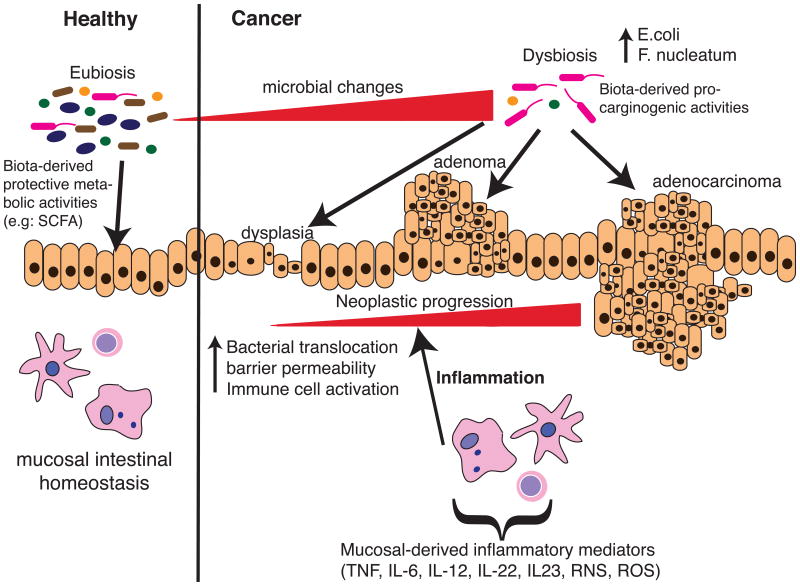Figure 2. Schematic overview of the interplay between the microbiota and the host on tumorigenesis.
At healthy state, the intestinal microbiota stands at an eubiosis stage, a phase which contributes to the maintenance of intestinal homeostasis through production of various metabolites and bacterial products (e.g SCFA), which promote immune balance. Various environmental factors such as diet, inflammation, stress or host genetics influence microbial composition and cause microbial dysbiosis (e.g increase abundance of AIEC and fusobacteria). This cancer-promoting biota may favour neoplastic progression through various carcinogenic activities (toxins, metabolites), which ultimately affect epithelial cell DNA integrity and cellular transformation. In conjunction with these changes, epithelial barrier integrity is compromised, further enhancing bacterial uptake and activation of mucosal immune cells (releases of inflammatory mediators), thereby contributing to neoplastic progression.

